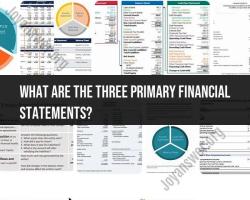What are the income requirements for a mortgage?
Income requirements for a mortgage can vary based on several factors, including the lender, the type of mortgage, your credit score, and your overall financial situation. Lenders assess your ability to repay a mortgage by looking at your income, debts, and other financial obligations. Here are some key factors that lenders typically consider:
Debt-to-Income Ratio (DTI):
- Lenders often use the debt-to-income ratio to assess your ability to manage monthly mortgage payments. It is calculated by dividing your total monthly debt payments (including the prospective mortgage payment) by your gross monthly income. Different lenders may have different maximum DTI ratios, but 43% is a common benchmark.
Housing Expense Ratio:
- The housing expense ratio is a subset of the DTI and specifically looks at the portion of your income that goes towards housing costs (mortgage, property taxes, insurance). Lenders may have guidelines specifying the maximum percentage of your income that can be allocated to housing expenses.
Credit Score:
- Your credit score is an important factor in mortgage approval and can also influence the terms of your loan. Higher credit scores may allow for more flexibility in income requirements.
Employment and Income Stability:
- Lenders typically look for stable and consistent income. Employment history, job stability, and a reliable income source can positively impact your mortgage application.
Down Payment:
- The amount of down payment you can make may influence income requirements. A larger down payment can sometimes compensate for a lower income.
Loan Program:
- Different loan programs (such as FHA, VA, conventional) have varying income requirements. Government-backed loans may have more flexible guidelines.
Residual Income:
- Some lenders assess your ability to cover living expenses after paying your mortgage. This is known as residual income and is often a consideration for VA loans.
Loan Amount:
- The size of the mortgage you're applying for can affect income requirements. Larger loan amounts may necessitate higher income levels.
It's crucial to note that these are general considerations, and specific requirements can vary between lenders. Mortgage lenders will typically evaluate your financial situation holistically, considering various factors to determine your eligibility for a mortgage and the loan amount you qualify for.
Before applying for a mortgage, it's advisable to consult with mortgage professionals or loan officers who can provide guidance based on your specific financial situation and the lending criteria of the institution.
Income Thresholds and Income Verification for Mortgage Approval
There is no single income threshold for mortgage approval, as lenders consider various factors beyond just income. However, certain income levels and verification processes play a crucial role in determining your eligibility for a loan.
1. Income Thresholds:
- General Guideline: Traditionally, lenders preferred borrowers with debt-to-income (DTI) ratios below 36%. This means your monthly debt payments, including the mortgage payment, should not exceed 36% of your gross monthly income.
- Variations: DTI requirements can vary depending on the loan type, credit score, and other qualifying factors. Some lenders might accept higher DTI ratios with compensating factors like significant down payments or strong credit history.
- Income Calculation: Lenders consider various income sources, including salary, wages, commissions, bonuses, and self-employment income. They may require documentation like tax returns, pay stubs, or bank statements to verify income.
2. Income Verification:
- Importance: Verifying your income ensures financial stability and the ability to make future mortgage payments.
- Documentation: Lenders typically require various documentation to verify income, including:
- W-2 forms for salaried employees
- 1099 forms for self-employed individuals
- Bank statements showing regular income deposits
- Business tax returns for self-employed individuals
- Verification Process: Lenders may contact your employer or verify income directly with IRS through services like the Income Verification Express Service (IVES).
- Impact on Approval: Inaccurate or incomplete income verification can delay or even disqualify your loan application.
Additional Factors:
- Credit Score: A high credit score (generally above 740) can improve your chances of approval and potentially lead to lower interest rates.
- Down Payment: A larger down payment reduces the loan amount and lowers your DTI ratio, making you a more attractive borrower.
- Debt: Existing debts, including car loans, student loans, and credit card debt, are considered in your DTI ratio.
- Employment History: Stable employment history and consistent income demonstrate your ability to meet financial obligations.
Overall, while income plays a crucial role in mortgage approval, it's not the only factor considered by lenders. A combination of factors, including income verification, credit score, down payment, and debt, determines your eligibility and loan terms.
Here are some additional tips for improving your chances of mortgage approval:
- Review your credit report and address any errors.
- Pay down existing debts to lower your DTI ratio.
- Save for a larger down payment.
- Get pre-approved for a mortgage to understand your loan options and budget.
- Seek guidance from a mortgage professional who can help you navigate the process.













